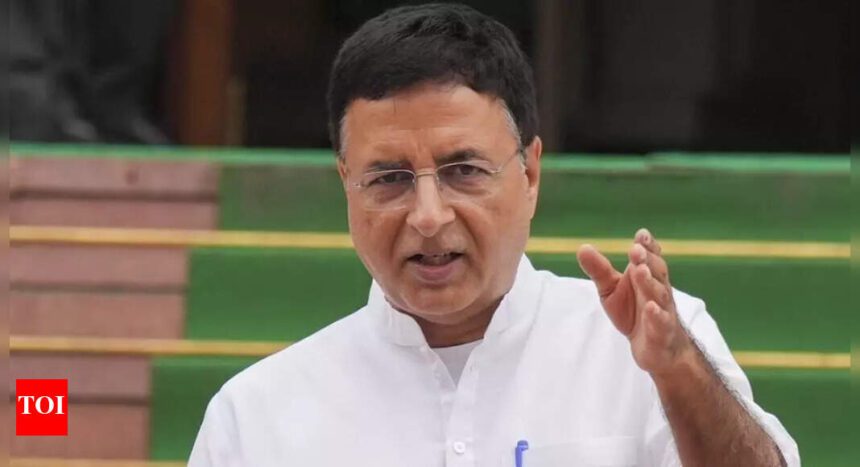NEW DELHI: The Congress party has raised concerns regarding the significant increase in state debt, as reported by the Comptroller and Auditor General (CAG). Public debt for states has tripled over the past decade, soaring from ₹17.57 lakh crore in 2013 to ₹59.60 lakh crore in 2022. Congress officials argue that these states are victims of “coercive federalism” implemented by the Modi government, which they claim is failing to adequately share revenues with them and is engaging in “cess politics.”
AICC spokesperson and Rajya Sabha MP Randeep Surjewala stated that public debt for states currently stands at 23% of the total Gross State Domestic Product (GSDP) of the 28 states. He attributed this situation to the central government’s management of the Goods and Services Tax (GST) Compensation Cess and various arbitrary levies, which he claims undermine fiscal independence for states.
Surjewala emphasized that states are facing a “double jeopardy” of rising debt coupled with declining revenues. He noted that approximately ₹1.70 lakh crore is collected annually from cess and surcharges, yet the central government retains these funds without distributing any to the states. The Compensation Cess, established to compensate states for GST losses, concluded in June 2022 and is now claimed to be primarily used for paying central loans. Surjewala urged that the central government should share this cess with states for the next ten years, especially considering that, beyond October 2025, there is no constitutional obligation to continue this cess.
He expressed concern that there seems to be a systematic effort to undermine state power and hollow out their functions, effectively converting them into “glorified municipal committees.” Surjewala also warned of significant potential declines in GST collections following rate cuts, estimating a shortfall ranging from ₹40,000 crore as stated by the Centre to ₹80,000 crore according to the State Bank of India (SBI). Other estimates suggest the shortfall could reach between ₹1.5 lakh crore and ₹2.5 lakh crore. He concluded that states would stand to lose a significant portion of these revenues, emphasizing that neither GST nor cess would be allocated to them.










